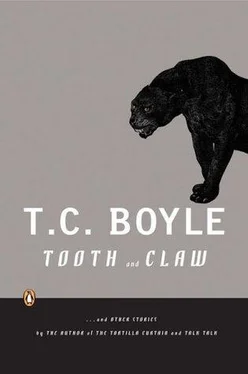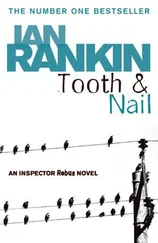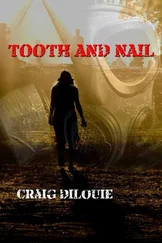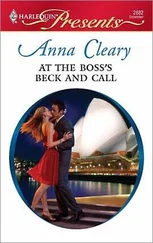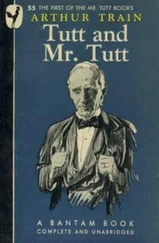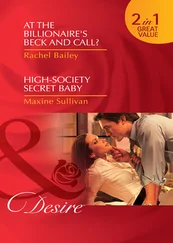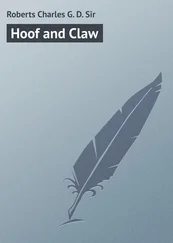She feasted on that a moment and he snatched a glimpse at her, the slow satisfied smile floating on her uplifted face, and the wheels grabbed and slipped and grabbed again. “That’s the thing,” she said, her voice rich with the telling, “that’s the whole point, to imagine that. They’re in their huts, frame houses, whatever — tin roofs, maybe just thatch. But the tin roofs are cooler. Way cooler. Think of the tin roofs. It’s like, ‘Daddy! Mommy!’ the kids call out, ‘it’s really raining!’ ”
This was hilarious — the picture of it, the way she framed it for him, carrying it into falsetto for the kids’ voices — and they both broke up, laughing like kids themselves, kids set free in the back of the bus on a school trip. But then there was the road and a black tree-thick turn he nearly didn’t make and the last spasm of laughter died in his throat.
A minute fled by, the wipers beating, sleet trapped in the headlights. She readjusted herself in the seat and he saw her hand — a white furtive ghost in the dark of the cab — reach down to check the seatbelt. “The tires are okay, aren’t they?” she asked, trying — and failing — to keep the concern out of her voice.
“Oh, yeah,” he said, “yeah, plenty of tread,” though he’d begun to think he should have sprung for chains. The last sign he’d seen, way back, had said Cars Required With Chains , and that stabbed him with the first prick of worry, but chains were something like seventy-five bucks a set and you didn’t need chains to get to work in Santa Monica. It seemed excessive to him. If he could have rented them, maybe—
And there went the back wheels again, fishtailing this time, a broad staggered Z inscribing itself across both sides of the road and thank God there was nobody else out here tonight, no chance of running into a vehicle coming down the opposite way, not with a winter storm watch and a road closure that was all but certain to go into effect at some point in the night…
“You’re really skidding,” she observed. He glanced at her a moment — sweet and compact in her black leggings and the sweater with the two reindeer prancing across her breasts — and then his eyes shot back to the road. Which was whitening before them, as if some cosmic hand had swept on ahead with a two-lane paintbrush.
“You know my theory?” he said, accelerating out of a turn and leaning into the pitch of the road — up and up, always up.
“No, what?”
“If you go fast enough”—he gave her a quick glance, straight-faced—“I mean really fast…”
“Yeah, uh-huh?”
“Well, it’s obvious, isn’t it? You won’t have time to skid.”
There was the briefest hesitation — one beat, and he loved that about her, that moment of process — and then they were laughing again, laughing so hard he thought he’d have to pull over to keep from collapsing.
HE’D MET HER three weeks ago, just before Thanksgiving, at a party in Silver Lake. Friends of friends. A Craftsman house, restored down to the last lick of varnish, good wines, hors d’oeuvres from the caterer, a roomful of studiously hip people who if they weren’t rockers or filmmakers or poets had to be training to swim the Java Strait or climb solo up the South Col of Mount Diablo. He figured he’d tank up on the hors d’oeuvres, get smashed on somebody else’s thirty-two-dollars-a-bottle Cabernet, then duck home and watch a movie on DVD, because he wasn’t really interested in much more than that. Not yet. He’d been with Christine for two and a half years and then she met somebody at work, and that had shaved him right on down to the root.
Ontario was standing by the fire with his best friend Jared’s sister, Mindy, and when he came to think of it later, he saw that there might have been more than a little matchmaking going on here from Mindy’s perspective — she knew Ontario from her book club, and she knew that Ontario, sweet and shy and reposing on a raft of arcane information about meteorological events and the swift passage of the various animal species from this sore and wounded planet, was six months divorced and in need of diversion. As he was himself, at least in Mindy’s eyes. The wine sang in his veins. He made his way over to the fire.
“So I suppose you must hear this all the time,” he said, trying to be clever, trying to impress her after Mindy had embraced him and made the introductions, “but are your parents Canadian?”
“You guessed it.”
“So your brother must be Saskatchewan, right? Or B.C., how about B.C.?”
Her hair shone. She was dressed all in black. Her eyes assessed him a moment — from behind the narrow plastic-frame glasses that were like a provocation, as if at any moment she would throw them off and dazzle the room with her unfettered beauty — and she very deliberately shifted the wineglass from one hand to the other. “Unfortunately, I don’t have a brother,” she said. “Or a sister either.” Then she smiled, fully radiant. “If I did, though, I’d think my parents would have gone for Alberta if it was a girl—”
“And what, let me guess— Newfoundland if it was a boy.”
She looked pleased. Her lips parted and she bit the tip of her tongue in anticipation of the punch line. “Right,” she said, “and we’d call him Newf for short.”
He’d phoned her the next night and taken her to dinner, and then to a concert two nights later, all the correspondences in alignment. She had a three-year-old daughter. Her ex paid alimony. She worked part-time as a receptionist and was taking courses at UCLA toward an advanced degree in environmental studies. One entire wall in her apartment, floor to ceiling, was dedicated to nature books, from Thoreau to Leopold to Wilson, Garrett, Quammen and Gould.
He fell. And fell hard.
EACH TURN WAS A duplicate of the one he’d just negotiated, hairpin to the right, hairpin to the left, more trees, more snow, more distance. The road was gone now altogether, replaced by a broad white featureless plain without discernible limits. He used the trunks of the trees as guideposts, trying to keep the car equidistant from those on the left and the ones that clipped by on the right like so many slats in a fence. It really wouldn’t do to skid into any of these trees — they were yellow pines, sugar pines, Jeffreys and ponderosas, as wide around as the pillars of the Lincoln Memorial — but the gaps between them were what caught his attention. Go off the road there and no one could say how far you would drop. Guardrails? Not out here.
They were silent a moment, so he took up the eels again — just to hear his own voice by way of distraction. “So I suppose there’s an upside — the villagers must have enjoyed a little fried eel and plantains. Or maybe they smoked them.”
“You’d get awfully sick of eel after a couple days, don’t you think?” She wasn’t staring out the windshield into the white fury of the headlights, but watching him as if they were cruising down the Coast Highway under a ripe and delicate sun. “No, I think they went ahead and buried them — the ones that were too injured to crawl off.”
“The stink, huh?”
“Or slither off. Did you know that eels — the American eel, which is what these were — can crawl overland? Like a snake?”
He squinted into the sleet, reached out to flick the radio back on, but thought better of it. “No, I don’t think so. Or maybe. Maybe I did. I remember they used to be in every creek when I was a kid — you’d fish for trout and catch this big slick whipping thing that always seemed to swallow the hook and then you couldn’t do anything but cut it loose. Because of the slime factor.”
“They’re all born in the Sargasso Sea, you know that, right? And that it’s the females that migrate inland?”
Читать дальше
